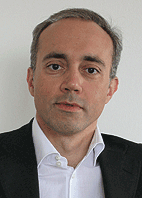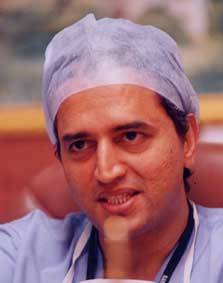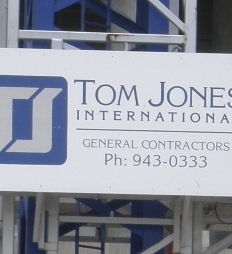Archive for November 17th, 2009

Fund chair denies allegations
 (Bloomberg): Alberto Micalizzi, the founder of the Cayman hedge fund Dynamic Decisions Capital Management Ltd., said allegations that he invested in worthless bonds are unfounded and investors will recover close to 100 percent of their money. The firm’s main hedge fund, with a net asset value of $550 million as of Dec. 31, is being liquidated in the Cayman Islands after investors raised questions about some of its holdings. The U.K. Serious Fraud Office, which prosecutes white-collar crime, opened a probe into the London-based firm last week after the matter was referred to it by the Financial Services Authority.
(Bloomberg): Alberto Micalizzi, the founder of the Cayman hedge fund Dynamic Decisions Capital Management Ltd., said allegations that he invested in worthless bonds are unfounded and investors will recover close to 100 percent of their money. The firm’s main hedge fund, with a net asset value of $550 million as of Dec. 31, is being liquidated in the Cayman Islands after investors raised questions about some of its holdings. The U.K. Serious Fraud Office, which prosecutes white-collar crime, opened a probe into the London-based firm last week after the matter was referred to it by the Financial Services Authority.

French to steer investors from tax havens
(AFP) The French government has drawn up a bill proposing a series of financially punitive measures to discourage individuals and companies from investing in tax havens, officials said Monday. One measure would impose a 50-percent tax rate on dividends, interest payments or other proceeds paid by French firms to people or other firms domiciled in tax havens, according to the bill presented at a cabinet meeting. Such proceeds are currently either tax free or taxed at a maximum 30 percent rate. The new measure would come into effect on January 1, according to AFP. The measures would apply to states on an OECD "grey list" of countries that pledged to implement internationally agreed tax standards but have not yet done so, and with which Paris has not signed deals to exchange fiscal information.

Major med facility planned
 (CNS): A world famous heart surgeon is planning to set up a new medical complex in the Cayman Islands which promises not only to provide cheaper health care for residents but to open up the prospect of medical tourism. Dr Devi Shetty (left), who is considered to be a health care visionary by many because of his pioneering work in providing high-quality health care at low cost, has set his sights on Cayman as a potential location for providing serious cardio and tertiary medical care to those from North America and the region.
(CNS): A world famous heart surgeon is planning to set up a new medical complex in the Cayman Islands which promises not only to provide cheaper health care for residents but to open up the prospect of medical tourism. Dr Devi Shetty (left), who is considered to be a health care visionary by many because of his pioneering work in providing high-quality health care at low cost, has set his sights on Cayman as a potential location for providing serious cardio and tertiary medical care to those from North America and the region.
According to a press release on behalf of Dr Shetty, the new medical facility would bring hundreds of millions of dollars to Cayman and turn the long held belief that Caymancould be a medical tourism destination into a reality. Bangalore, India, where Dr Shetty founded his group of hospitals, the Narayana Hrudayalaya Group, is already enjoying a boom from medical tourism, not least because of Shetty’s approach, which works on the principle of quantity as well as quality to keep costs down.
“Dr Shetty has made it his mission to provide the highest-quality health services to patients who otherwise could not afford treatment,” the release said. Dr Shetty himself is said to perform literally hundreds of serious medical procedures every week and has revolutionized the provision of healthcare.
According to the same release, in a venture with various state governments he founded Yeshasvini Micro Health Insurance, which in its first 20 months of operation enabled 85,000 farmers to receive free medical treatment, including 22,000 free surgeries.
Dr Shetty’s 1,000-bed heart hospital in Bangalore, one of the largest in the world, performs 30 heart surgeries a day. He also runs a 1,500 bed cancer hospital, a “super specialty” eye hospital equipped to perform 500 cataract surgeries a day, a 250-bed trauma and orthopaedic centre, and an academic institution with 48 training programs for medical specialists, nurses, medical technicians, and healthcare administrators.
The idea of bringing a significant sized and multi-disciplinary hospital to Cayman, with its proximity to the US, is driven by a number of factors, including forecasts that medical tourism from there could increase tenfold during the next decade. In 2007, 750,000 American patients went overseas for major healthcare needs; last year the number reached almost 1.5 million. In the US a heart-bypass operation costs on average about $144,000. The same operation in India at one of Dr Shetty’s medical facilities, including airfare and accommodation, is around $8,500.
The plan for Dr Shetty to bring his health care vision to Cayman seems to have government backing. While emphasizing that this is a private initiative, Minister of Health Mark Scotland reportedly said he believed such a project could bring “great benefits” to the Cayman Islands, including on-island availability for tertiary care, which is not available in many instances at local hospitals, as well as lower-costs to patients, insurance companies, and government, and an infusion of high-quality jobs.
Medical tourism, Scotland said, could emerge as the long-elusive “third leg” of the Cayman economy, complementing financial services and the hospitality industry. Premier McKeeva Bush is also said to be supporting the initiative, and government will be exploring the proposal in the coming weeks.
Canover Watson, chairman of the Health Services Authority (HSA), said medical tourism held “great promise” for the Cayman Islands and that the work of Dr Shetty and his facilities in India were a “model” for this industry worldwide.
CNS understands that the planned facility will be considerably bigger than the Chrissie Tomlinson Hospital and the scope of the project was described as “enormous". It will work on Dr Shetty’s principle of carrying out high numbers of procedures every day to keep costs down. The main goal is to attract overseas patients for a diverse range of health services, as well as offering genuine affordable health care to locals. As the project is still in the early stages of development, a spokesperson for the Narayana Hrudayalaya Group said that more details would be revealed in the next few weeks. The key message, however, was that Dr Shetty was aiming to “make Cayman a centre of excellence for health care” and develop the concept of medical tourism for the jurisdiction.
Government clean up doesn’t plug unemployment hole
(CNS): More than 200 people were estimated to have turned up at the Truman Bodden Sports Centre in George Town on Monday morning, (16 November) looking for the opportunity of just one month’s work on a government clean-up initiative. However, there was only work for around 120 people on the project, which is, according to government, designed to give Caymanians work and clean up the island in time for Christmas. Almost half of them were turned away disappointed as there is not enough money allocated to take on all of those who want work, News 27 reported.
In West Bay, George Town, and Bodden Town only 300 people from a total of 900 that enquired about work on the clean-up projects have been taken on. Ezzard Miller, the independent MLA for North Side, told the TV station that, as far as he was aware, no money had been allocated to clean up his district and that there was no word from East End.
Government is paying workers $10 per hour and supplying one meal and water per day for those who are taken on to the project. Candidates had to be Caymanian, status holders, married to a Caymanian or a permanent resident.
The project was first announced by the premier several months ago as a way to give Caymanians work, clean-up the island and put some money in the domestic economy. With so many people turning up for work, however, government now understands the extent of the unemployment problem it is now facing.
One resident told News 27 he couldn’t believe how many young Caymanians had turned up.
“I was shocked to see the amount of Caymanian youths unemployed,” he said. “No one can say things guys are lazy and they don’t want to work they are here and you could see the frustration when they were not selected.”

School sites remain silent
 (CNS): The impasse between government and the general contractor on the new high schools, Tom Jones International (TJI), saw no signs of improvement on Monday as machinery and equipment lay silent on both sites. TJI, however, did break its silence to deny accusations made by the education minister that it was holding the country to ransom. “That is totally absurd. In reality the opposite is true, but a much more extensive statement regarding this situation will be releases shortly,” a spokesperson for TJI said. Minister Rolston Anglin also said that he would not be intimidated by TJI, as he claimed the previous minister was, into signing unreasonable agreements.
(CNS): The impasse between government and the general contractor on the new high schools, Tom Jones International (TJI), saw no signs of improvement on Monday as machinery and equipment lay silent on both sites. TJI, however, did break its silence to deny accusations made by the education minister that it was holding the country to ransom. “That is totally absurd. In reality the opposite is true, but a much more extensive statement regarding this situation will be releases shortly,” a spokesperson for TJI said. Minister Rolston Anglin also said that he would not be intimidated by TJI, as he claimed the previous minister was, into signing unreasonable agreements.
Since Anglin took up the post as education minister, the contractor has now downed tools twice, and although he threatened to do so many times under the previous administration, work had never actually stopped. Alden McLaughlin, the former minister of education, says he recognised the need to be practical, to avoid legal battles and keep the schools on track.
McLaughlin said he was well aware that the developer was not necessarily easy to deal with and that he faced threats of work stoppages from around Christmas of 2008, which, he said, were challenging and persistent. However, it was not a matter of being intimidated but about facilitating the projects and accommodating the needs of the developer to keep the projects moving within the parameters of the contract and at no extra cost to government, he said.
“Even before the country was hit by the global economic downturn we knew that the projects would present challenges because of the legal constraints on government borrowing within each fiscal year, limiting the amount of cash government could pay the developer up front,” he said. McLaughlin explained that the contracts were designed so that government would pay set amounts agreed between government and the developer in each financial year over the three year period in which the schools were to be built.
McLaughlin said that when government guaraneed a line of credit to TJI last year it was because it had cash flow issues and needed access to more money than had been allocated for the 2008/09 year in the contract. “This wasn’t about being intimidated it was about being practical and being committed to getting the schools built,” McLaughlin said.
Offering his sympathy to the new minister who was now dealing with the developer, McLaughlin said the negotiations weren’t easy but part of the problem was that this government needed to show a commitment to wanting to get the schools finished.
Given the behaviour of this administration in its first few weeks in office, McLaughlin said, it was no surprise that the contractor had concerns about government’s ability to pay. Above all, he said, the time for blaming the previous administration and chest beating was past and the most important thing was ensuring the schools were completed on time for the sake of Cayman’s students. “The way they handled the financial crisis when they came to office, declaring the country bankrupt, it’s hardly surprising if the developer is now shaking in his shoes about getting paid.”
TJI warned government and sub-contractors last Thursday that they would be stopping work at both sites the next day.Although the developer made no direct comment, it was understood the dispute revolved around disputed payments. Government then denied owing any money to TJI and said on Thursday afternoon that it had been informed that the general contractor had stopped work because it did not believe that government had the financing to see the developments through to the end. However, Anglin said the funds had been clearly allocated in the budget.
Although no further details emerged on Monday about whether this project could be resolved any time soon, speculation mounted that the current administration is less keen to settle with TJI than it is to seek possible ways to have the company removed from the project and replaced with another general contractor.